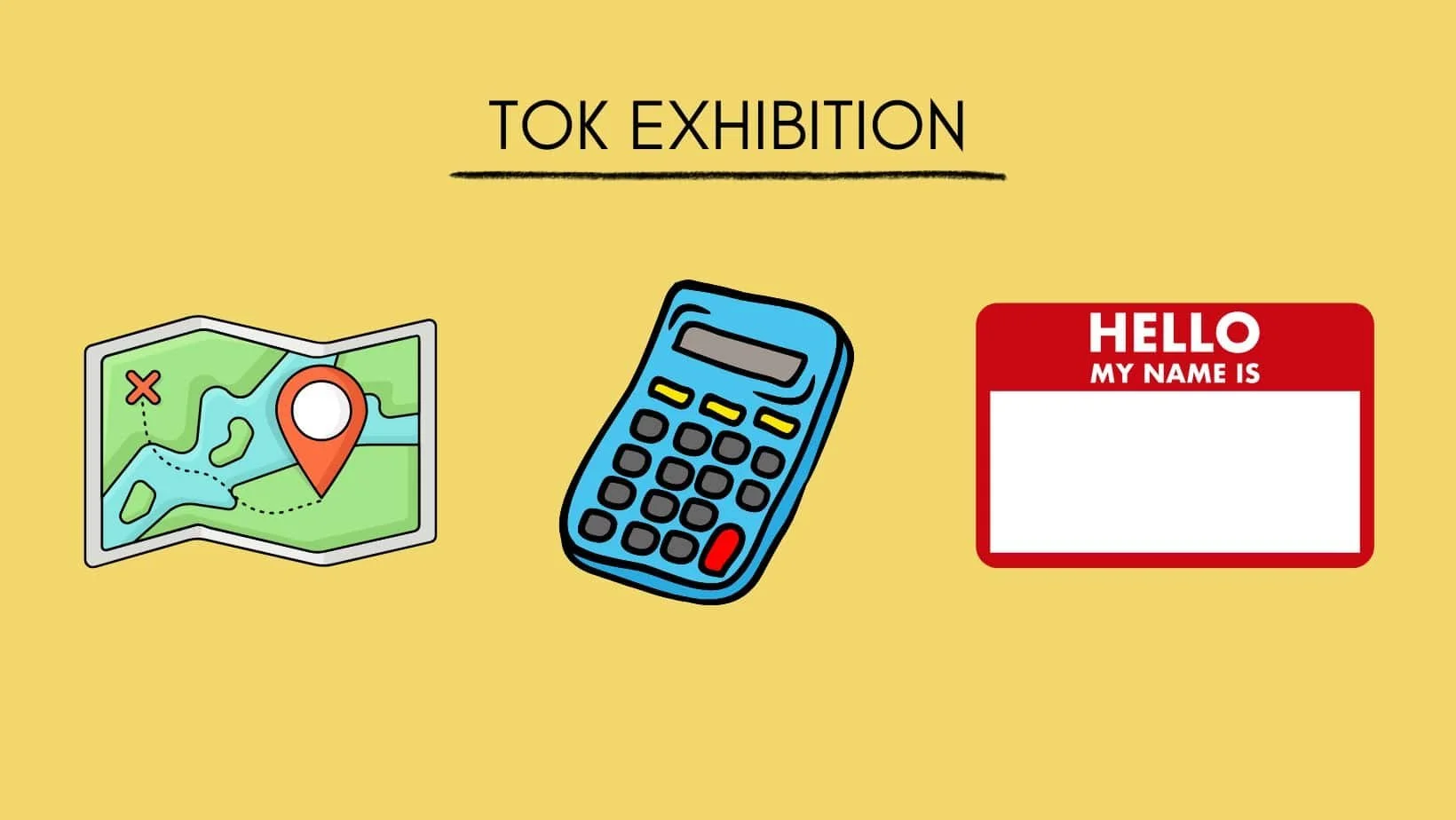IB TOK Guide: Understanding and Excelling in Theory of Knowledge
What is Theory of Knowledge (IB)?
Theory of Knowledge is a mandatory component of the IB syllabus, designed to question what knowledge means and make students aware of their personal and ideological assumptions/biases, garner critical thinking skills and explore different perspectives. The question of “how do we know” sits at the heart of TOK IB.
The TOK syllabus is meant to be challenging and thought-provoking. While it can feel confusing at first studying a subject that asks more questions than offers answers, Theory of Knowledge aims to teach students a way of thinking that is expansive and empowering rather than shovelling content by rote. The IB TOK syllabus explores different ways of knowing, unpacking concepts such as evidence, certainty, objectivity and responsibility in a cross-disciplinary setting.
The course is examined through an exhibition (worth 1/3 of grade) and a 1,600 word essay (worth 2/3). Both of these pieces of work require students to understand and apply the IB TOK theories and ways of thinking that you will have studied in class in order to score top marks.
This TOK guide breaks down the syllabus and helps you understand the key questions and themes of the IB Theory of Knowledge course. It also offers tips for scoring full marks in your TOK Exhibition and essay. Whether you’re just considering the IB or in the midst of your IB TOK projects, this guide covers everything you need to know about Theory of Knowledge.
A Breakdown of the TOK Syllabus
The IB TOK course is divided into different themes:
Knowledge and the Knower
Optional themes
Areas of Knowledge
Knowledge and the Knower is a core theme of the IB TOK course, designed to support all other aspects of the programme. It asks students to reflect on themselves as knowers and thinkers and think about the communities of knowers which they’re part of, asking questions about the self’s relationship to knowledge, like:
What shapes my perspective as a knower?
Where do my values come from?
Why should we care about acquiring knowledge?
Are there responsibilities that necessarily come with knowing something or knowing how to do something?
There are then a series of optional IB TOK themes that schools will choose for students. These include:
Knowledge and technology (e.g. To what extent is the internet changing what it means to know something?)
Knowledge and language (e.g. Is it possible to think or know without language?)
Knowledge and politics (e.g. Is being knowledgeable an important quality in a political leader?)
Knowledge and religion (e.g. Does religion try to resolve problems that other areas can’t resolve?)
Knowledge and indigenous societies (E.g. How have government education policies and systems compromised the transmission of indigenous knowledge?)
Lastly, there’s areas of knowledge (AOK). Students must explore five areas of knowledge as part of the IB TOK course: history; the human sciences; the natural sciences; mathematics; and the arts. In each of these subjects, students unpack what knowledge means and how our approach to knowledge varies in (and across) different disciplines.
It’s important to note that these components of the IB TOK course, while taught separately, shouldn’t be seen as individual and unrelated areas. The whole point of Theory of Knowledge is to teach students about the intertwined, interdisciplinary nature of these questions and the importance of applying this approach to all topics. While the knowledge and politics topic may be taught separately to questions about your perspective as a knower or the human sciences AOK, it’s important students build on their knowledge of each topic to explore them all in more depth. This will come into play in the TOK Essay and Exhibition where all topics are examined together.
Mastering the TOK Essay
The TOK essay is worth 2/3 of your final grade for the IB TOK paper. It’s your opportunity to showcase your understanding of all the components of the TOK syllabus so far and to apply the critical thinking and questioning approaches to knowledge you’ve been developing over the course of the Theory of Knowledge paper.
In the TOK essay, students can choose from six titles released by the IB exam board each year. The essay can be up to 1,600 words and students can receive feedback on one draft from their teacher.
Example TOK essay titles include:
“To what extent are areas of knowledge shaped by their past? Consider with reference to two areas of knowledge.”
“There is no such thing as a neutral question. Evaluate this statement with reference to two areas of knowledge.”
“When historians and natural scientists say that they have explained something, are they using the word “explain” in the same way?”
“Are there fewer ethical constraints on the pursuit of knowledge in the arts than in the human sciences?”
In order to score highly on the TOK essay, it’s really important to stay relevant to the question you choose and to make sure your answer is linked effectively to areas of knowledge. Evidence is essential to include in a TOK essay and should be examined and challenged. Don’t be afraid to make effective counterarguments which show your ability to handle the nuances of knowledge questions and resist the idea of an easy answer. Make sure the evidence you choose is clearly relevant to the question you’re answering and helps move your argument forward.
As you plan and write your TOK essay, remember not to think about any element of the IB TOK course in isolation. It’s really important to be able to make intelligent links and to show how your approach builds on the different elements of the course. This means, for example, continuing to question your personal biases about knowledge as you write. A strong TOK essay will pay attention to both sides of the argument rather than leaping to a conclusion.
Strong research is also essential if you’re looking to get top marks. In a paper challenging our assumptions about knowledge, make sure you spend time choosing reliable sources and that you don’t just accept the knowledge they provide you with. It’s important to critically evaluate all arguments and evidence from multiple perspectives.
Don’t be afraid to be original in your writing if you’re looking to get full marks. A top TOK essay will be insightful and original, as well as convincing and well-argued.
Finally, checking your essay is key to ensuring clarity and avoiding errors. It also gives you the opportunity to check any claims of knowledge you’ve made. Read your essay with the critical eye and approach that the IB Theory of Knowledge course has taught you. Ask yourself, is it really as straightforward as this source or suggests or as I have argued?
Approaching the IB TOK Exhibition
Like the TOK essay, the TOK Exhibition gives students an opportunity to combine all they have learned in the Theory of Knowledge course. For the TOK Exhibition, students must select three objects as part of their exhibition that responds to one of 35 IA prompts.
These prompts don’t change and cover all aspects of the TOK syllabus, such as:
Does all knowledge impose ethical obligations on those who know it?
Who owns knowledge?
What role does imagination play in producing knowledge about the world?
In order to stand out in the TOK Exhibition, it’s important to have a clear understanding of the theme of the IA prompt you choose. You need to ensure that all three objects you select for the exhibition are strongly rooted in one of the TOK syllabus themes and that each of them allow you to explore how TOK manifests in the world around us.
In your TOK exhibition (which can be up to 950 words max), you need to make a strong justification of how each individual object contributes to the theme. Make sure that you choose objects that allow you to explore different angles of the question you’re answering. Your TOK exhibition will be very dull and won’t score highly if each object just gets you to repeat your argument from the one before. Try and think about how each object you’ve chosen uniquely fits into your TOK exhibition and what new elements it offers or questions it raises.
Your argument needs to be well-supported by evidence and it’s essential that you bring in the context surrounding it for the examiner to better understand and to root your analysis in a specific object rather than a generic one.
Looking for an Expert TOK Tutor?
Theory of Knowledge (TOK) is central to the IB, fostering critical thinking, self-reflection, and a deeper understanding of knowledge itself, but it can be a real challenge to get your head around. Whether you're tackling your TOK essay, preparing your exhibition, or just trying to make sense of the syllabus, our dedicated TOK tutors can guide you through every step of the process.
Our TOK sessions focus on:
Understanding core and optional TOK themes.
Developing analytical and critical thinking skills for the essay and exhibition.
Mastering interdisciplinary links between TOK and other IB components.
Structuring arguments and integrating evidence in order to create compelling, original work.
We also support students with all aspects of the IB, from Extended Essays and Internal Assessments to subject-specific tutoring across Standard and Higher Level courses. Our tutors are IB graduates with exceptional scores (many achieving 7s in their subjects and perfect or near-perfect overall scores) who have gone on to study at Oxbridge and other top global universities.
How We Work:
Complimentary Consultation: Discuss your unique goals and needs with our team.
Tailored Tutoring Matches: We'll pair you with an IB or TOK tutor who specialises in your area.
Preliminary Session: Begin with an informal assessment to identify strengths and areas for improvement.
Regular Sessions: Structured to support all IB elements, ensuring you're on track for success.
Whether you're seeking support with a single TOK project or looking for holistic guidance across the IB syllabus, we’ll help you approach the programme with confidence and clarity. Contact us to arrange a free initial assessment to discuss TOK tuition options or our IB support programmes.
Explore our IB offerings and book your consultation today! Sessions start at £70/h + VAT.




